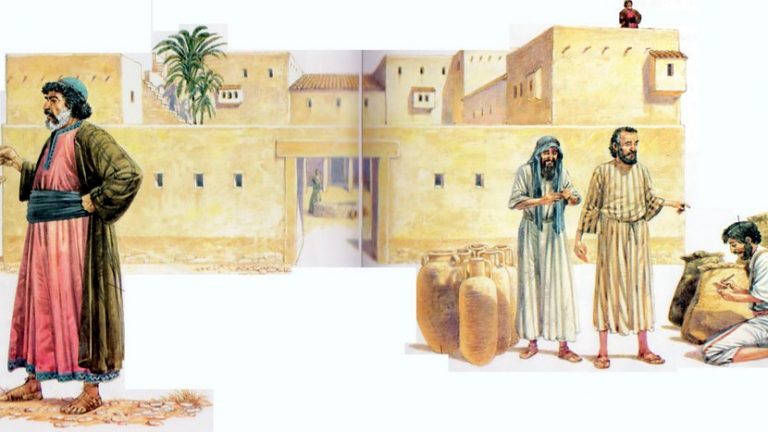25TH SUNDAY IN ORDINARY TIME YR C
Am 8:4-7; Ps 112
1 Tim 2:1-8; Lk 16:1-13
Learning From A Bad Example
We continue our reading from the gospel according to Luke. Today we read from Luke 16:1-13. This is one of the difficult passages in the gospels: the parable of the dishonest steward.
He was in charge of his masters’ estate. His duty was to collect rent for the master. But from what we read he puts too much commission on the rent and embezzled some funds. When the master asked for an account of his stewardship because he was found to be unfaithful, he realised he had limited time on the job. He did something that Jesus seems to appreciate: he called all the debtors and reduced what they owed including slashing his own commission.
He was praised for his prudence. Jesus says of him “… the children of this world are more prudent in dealing with their own than are the children of light” (Lk 16:8)
What is this prudence that Jesus recommends?
The steward like many of us are slaves to our selfish desires and greed. Knowing that his time was limited he began to do things right. He began to give up the things he had acquired illegally and unfairly.
The wisdom here for the Christian is that we should know that our time here on Earth is short and we must begin to live right. Like the steward, we must begin to correct the wrongs in our lives. It is never too late to turn over a new leaf so long as you have life. This parable just teaches us how to live as Christians. Are you ready to slash and cut off your greed and the things that do not portray you as a good steward of the blessing of God? Maya Angelo puts it better when she says, “Do the best you can until you know better. Then when you know better, do better”.
We must also not lose sight of the fact that we shall all be accountable for our stay on Earth. We do not own ourselves neither do we own the goods of the Earth. We will be called at the evening of our lives to give an account for how we have lived our lives and how we have cared for and used the goods of the Earth.
The second point of the gospel has to do with the use of wealth. They are to be used for the benefit of all. Generosity is a spiritual activity. No one has too little to give. I think this is what Jesus means when he said, “the man who can be trusted in little things can be trusted in great” (Lk 16:10). If you are generous with the little you have, it is an indication that when God blesses you with more, you would be generous.
The third point is the admonition of Jesus to serve God alone. “No one can serve two masters…you cannot serve God and mammon” (Lk 16:10). Mammon generally has been considered to refer to money (in Hebrew) but it is broader than that (New Testament use). It refers to the undue, inordinate and inappropriate attachment to the things of this world and the accumulation of those things. They can be money, material possession, or our work, our hobbies or our success and worldly pleasures that come with it. These things can come between people and their commitment and worship of God. When this happens mammon is threatening your service of God. All these should be subject to your commitment to God. You cannot be too rich to worship God. You cannot become too comfortable that you no longer need God. Do not be like the dishonest steward. To survive as a child of light you must befriend God than the things of this world.
Today, Jesus uses the bad example, the story of the dishonest servant, to exhort us to know how to live better. May he bless, direct and strengthen us.
God bless you.
By Fr. Delight Arnold Carbonu




